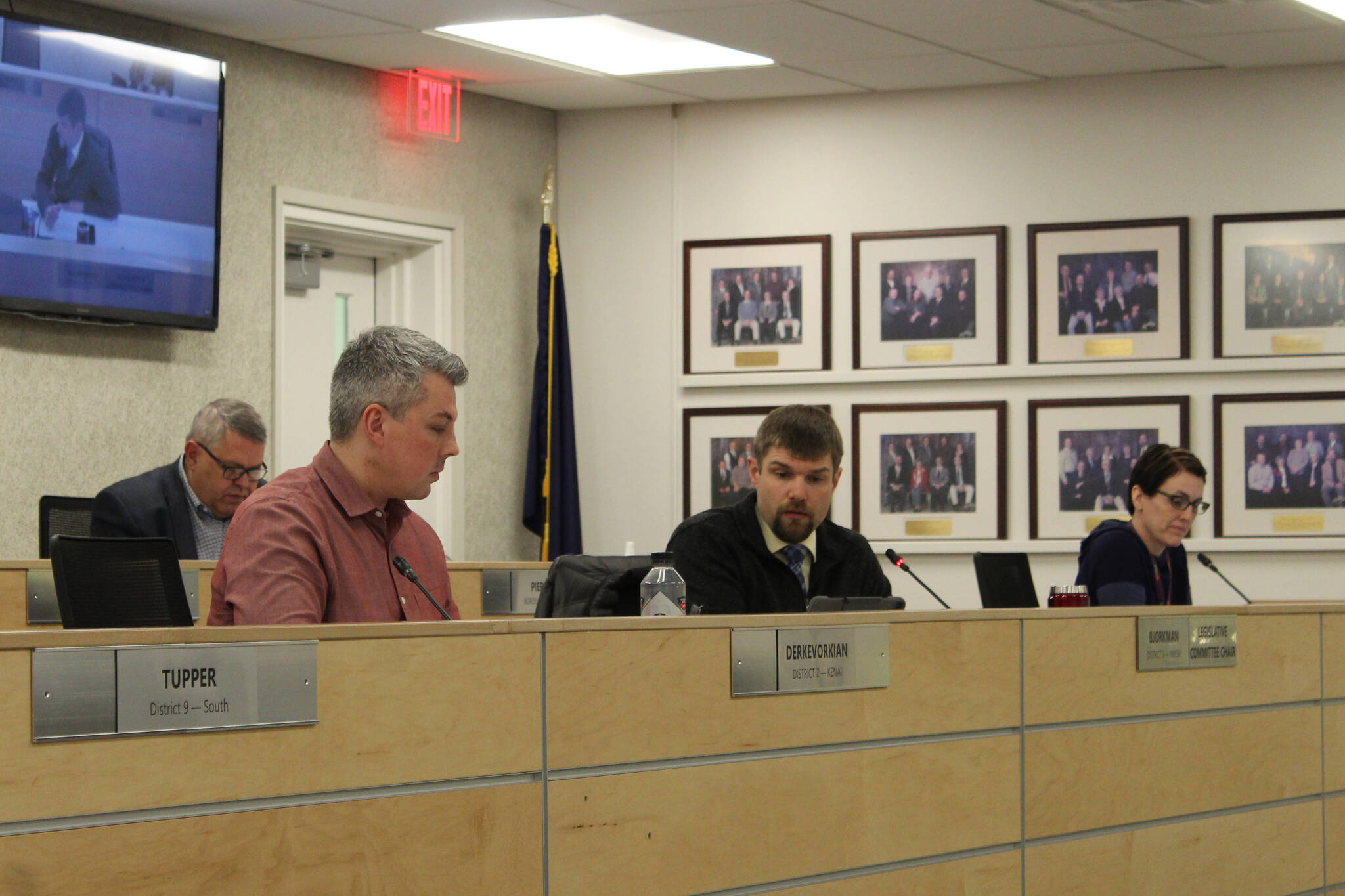A split assembly voted Tuesday to oppose the implementation of a statewide sales tax in Alaska after debate over what impact such a tax would have on local municipalities.
The resolution mulled by assembly members Tuesday was a response to legislation introduced in the Alaska Legislature that would implement a statewide sales tax. Alaska does not currently levy a sales tax, though taxes are collected by other municipalities, including the Kenai Peninsula Borough and incorporated cities within the borough.
Kenai Peninsula Borough Finance Director Brandi Harbaugh told assembly members during a Tuesday finance committee meeting that the resolution was brought forth “mostly for discussion purposes” ahead of travel by some assembly members to Juneau this week.
The borough’s chief concern about the implementation of a statewide sales tax, Harbaugh said, is the potential impact it would have on municipalities in the Kenai Peninsula Borough. Currently, municipalities have local sales and property taxing authority, Harbaugh said, which allows those tax structures and associated exemptions to be tailored to the demographics of that specific municipality.
“If the state of Alaska were to implement a statewide sales tax, of which they’re discussing a 1% statewide sales tax, that would perhaps reduce the ability for local jurisdictions to assess sales tax (or) to meet what we would use for education purposes,” Harbaugh said.
The resolution adopted Tuesday night articulates those concerns.
“A statewide sales tax combined with existing local sales taxes will eventually result in communities reducing local sales tax rates and increasing local property tax rates to continue delivering essential municipal services,” the legislation reads.
Another concern about the implementation of a statewide sales tax is the potential impact it would have on funding for the Kenai Peninsula Borough School District.
Revenue generated by the Kenai Peninsula Borough through sales tax goes directly toward funding the KPBSD. This year, the school district has asked for $50 million from the borough. Harbaugh said Tuesday that preliminary estimates show the borough bringing in $36 million in sales tax revenue. The borough is required to at least give the district $28 million, but could give the district up to $53 million.
Assembly members were split during Tuesday’s assembly meeting about what message the resolution would be sending to lawmakers. Those who supported the resolution said it would support local control of taxes and protect set revenue for the school district, while those opposed said it would take away a tool for lawmakers to consider without proposing an alternative solution.
Lawmakers and Gov. Mike Dunleavy have made clear that a common goal for the legislative session currently underway in Juneau is to solve some of Alaska’s fiscal woes, including preserving the Permanent Fund dividend and consideration of a proposed 50-50 plan under which Permanent Fund earnings would be split between dividend payments and state services.
Assembly member Jesse Bjorkman, who is also a teacher at Nikiski Middle High School, said he opposes the resolution because he has heard from the peninsula’s legislative delegation that they would be open to considering a statewide sales tax as a source of new revenue for Alaska.
“What we heard in committee was a lot of conjecture about what might happen,” Bjorkman said. “And what we’re being asked to do through this resolution is eliminate a tool that state legislators might use to bring about a fiscal plan for the state. That’s not something that I’m comfortable doing, especially considering that we have some conservative legislators from our borough that have said, if revenue is necessary, then they would support a sales tax.”
Kenai Peninsula Borough Mayor Charlie Pierce, who sponsored the resolution, said municipalities have previously been vocal about wanting control of their respective sales tax, which cities can use to partially control revenue streams. Though the legislation currently before the Alaska legislature hasn’t moved very far in the legislative process, Pierce said he’d like to make the borough’s position clear from the get-go.
“Oftentimes, you want to get out ahead of it and just send a friendly message that, ‘hey, we’re not in favor, let’s find another option,’” Pierce said. “I agree with some of the conversations here that we should have solutions as well, but I just want to remind you, cities were in this room, and they influenced that budget that year, where they didn’t approve the two cents on the dollar.”
The assembly ultimately voted 5-4 in support of the resolution, with assembly members Bjorkman, Tyson Cox, Richard Derkevorkian and Cindy Ecklund voting in opposition. Tuesday’s full meeting of the Kenai Peninsula Borough Assembly can be viewed on the borough’s website at kpb.us.
Reach reporter Ashlyn O’Hara at ashlyn.ohara@peninsulaclarion.com.


